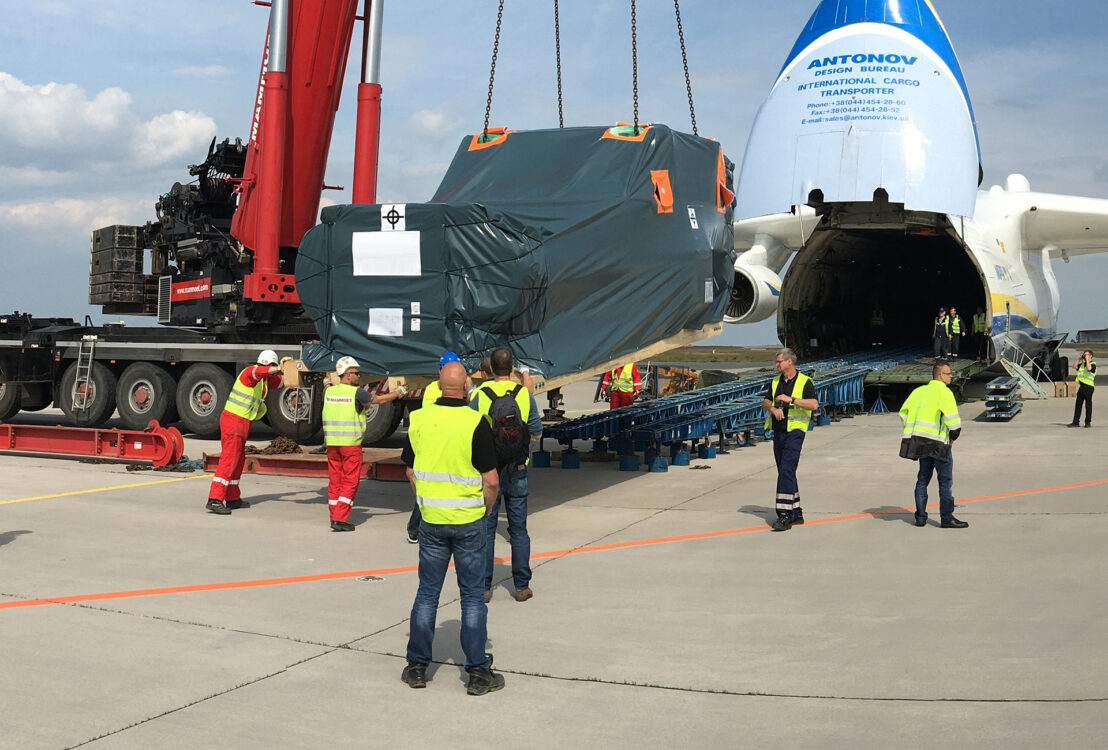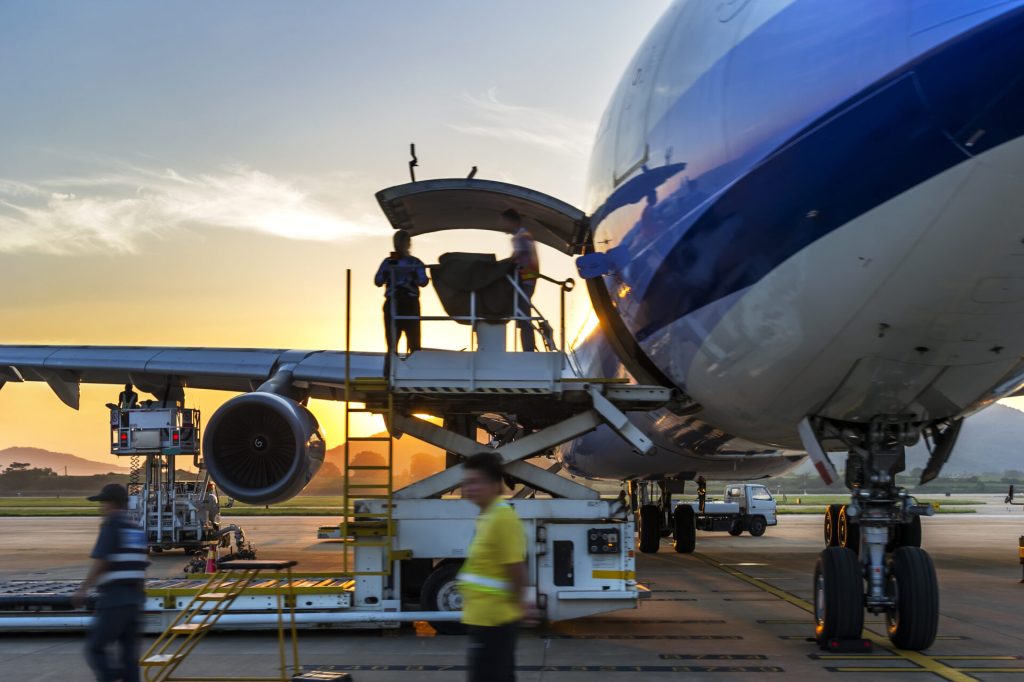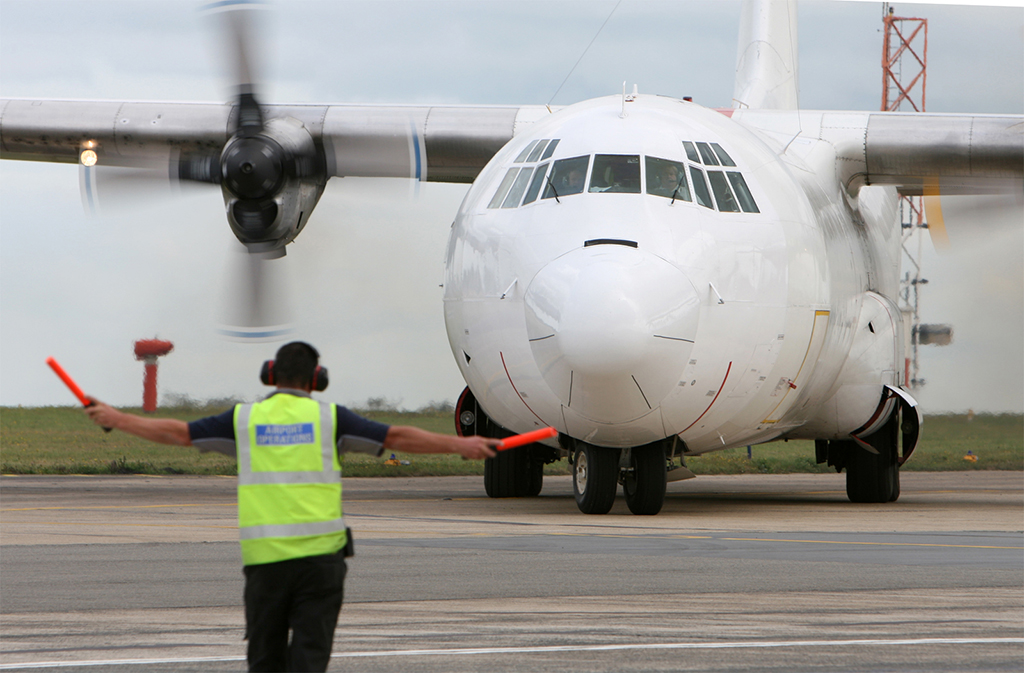
One of the major factors that global economic growth depends on is delivering goods safely and efficiently.
The latter, in turn, starts with proper cargo handling services. Market size for cargo aircraft charter services was valued at USD 25.4 billion in 2020 and is expected to reach USD 34.8 billion by 2026, at a CAGR of 5.1%. Given the world’s reliance on air freight for timely deliveries, the expertise and accuracy of these services are vital, as they ensure that supply chains stay strong and meet customer demands worldwide.
In this article, we’ll take a closer look at these unsung heroes of the cargo industry and how they work to ensure smooth and effective operations.
Understanding ground handling for cargo air charters
We may think ground handling is just about loading and unloading freight, but it actually encompasses various other tasks, including managing paperwork and ensuring compliance with safety regulations. It also involves coordinating with stakeholders to facilitate operations from the moment the cargo arrives at the airport until it departs. Ground handling services are essential for optimizing efficiency, minimizing turnaround times, and maintaining the security of shipments.
Typical airport facilities used for cargo operations are cargo terminals, warehouses, and dedicated apron areas equipped with loading ramps and cargo handling equipment like forklifts and conveyor belts. These facilities are designed to accommodate the specific needs of cargo aircraft with ample space for storage, sorting, and processing of shipments. Additionally, airports often provide specialized facilities for handling perishable goods, hazardous materials, and oversized cargo pieces.
Loading and unloading procedures for aircraft cargo require a lot of precision and coordination. Typically, the process begins with the arrival of the cargo at the airport’s designated cargo terminal. Here, the shipments are sorted, checked for compliance with safety regulations, and prepared for loading onto the aircraft. Once cleared, the cargo is transported to the apron area, where the aircraft awaits.
The loading process involves specialized equipment such as high loaders, cargo loaders, and conveyor belts to efficiently transfer the cargo from the terminal to the aircraft’s cargo hold. These tools ensure that goods are loaded securely and in accordance with weight distribution requirements to maintain the aircraft’s balance and stability during flight.
Similarly, unloading is done with the highest levels of attention and care to avoid any damage or delays, which can ripple through the entire logistics chain, leading to missed connections, financial losses, and damaged goods. Luckily, advanced technology, including RFID tracking systems and automated cargo handling systems, helps minimize the risk of errors.

Airport and ground handling requirements
There are strict guidelines that companies must follow when handling cargo, as set by regulatory bodies. These regulations cover such factors as security protocols, handling procedures, and facility standards. For instance, airports must adhere to security measures to prevent unauthorized access to cargo areas and mitigate the risk of tampering or theft. Besides, facilities must meet specific standards for infrastructure, equipment maintenance, and personnel training.
The requirements for handling cargo at airports vary depending on the type of goods being transported. Hazardous materials, for example, are strictly regulated by organizations like the UK Civil Aviation Authority, the International Air Transport Association (IATA), and the International Civil Aviation Organization (ICAO). In this case, specialized handling procedures, packaging requirements, and documentation are mandatory. On the other hand, perishable goods such as fruits, vegetables, and pharmaceuticals require careful temperature control and expedited handling to prevent spoilage and maintain product integrity.
Cargo security and storage facilities
Surveillance cameras, access control systems, and security personnel are all in charge of keeping shipments safe during transit and while waiting at the airport. Different types of storage facilities are also available at airports to accommodate different kinds of cargo. The facilities ensure the integrity and safety of cargo by providing a controlled environment that meets regulatory standards and industry best practices.
For example, temperature-controlled warehouses are used for perishable goods like food and pharmaceuticals to maintain their freshness. Hazardous materials may require specialized storage areas equipped with safety features to prevent accidents or contamination, while secure storage yards are often used for oversized or bulk cargo that cannot fit into standard warehouses.
Cargo air charter challenges and solutions
It won’t come as a surprise that navigating the world of cargo air charters comes with its fair share of challenges. One common obstacle is the complexity of cargo handling, which involves meticulous coordination and adherence to strict regulations. Delays, errors, and damage to shipments can arise if not managed effectively. Other challenges include the high cost of air cargo transportation and the market’s competitiveness, with many carriers offering similar services.
To tackle this, industry players are investing in improved processes and advanced training programs for ground-handling personnel. Automation and digitization are game-changers here. For instance, automated cargo handling systems optimize workflows and reduce human error, whilst RFID tracking and real-time monitoring enable greater visibility throughout the supply chain and the possibility of addressing issues proactively. Other innovations like drones and robotics are transforming last-mile delivery, especially in remote or inaccessible areas.

Conclusion
Our world is more interconnected than it has ever been, and the smooth functioning of global supply chains relies on the efficient and secure handling of cargo. As stated in this article, this is where airport and ground handling services come into play. From loading and unloading procedures to strict security measures and compliance with regulatory standards, airport ground crews work tirelessly to keep the wheels of commerce turning.
Even though cargo handling comes with some challenges and complexity, automation, digitization, and emerging technologies offer promising solutions to enhance efficiency, reduce errors, and provide greater visibility across the supply chain. Therefore, investing in improved processes and advanced training can allow cargo air charters to overcome many obstacles. As long as we continue to adapt and innovate, the future of cargo handling surely looks bright.
Are you looking for a reliable and trustworthy cargo air charter partner yourself? With five decades of air cargo charter experience, Chapman Freeborn will make everything possible to transport your freight with the highest level of care and attention. To learn more about our services and get a quote, visit us at https://chapmanfreeborn.aero/services/cargo-air-charter/.